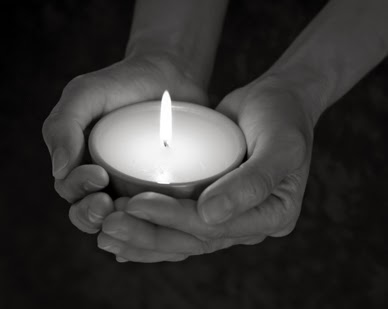Let us come into his presences with thanksgiving(Psalm 95.2)
In her Christmas Day message this year the Queen spoke of the vital importance of reflection in human life. Standing back and thinking about what has been and what is to come is a vital part of what it means to be human.
Thanksgiving is the simplest form of reflection. We look back. We think about what has been good in our lives, about those who love us, about all we have received and we say thank you to God our creator and redeemer.
Thanksgiving is a vital antidote to the consumer society. Advertising and business spends millions of pounds each year to convince us that we are not content with life as it is: we need to spend more to be happy. To live a balanced and contented life in such a world we need to be spending as much time saying thank you as we spend watching adverts. Thanksgiving is a powerful antidote to the pervasive spirit of grumbling which takes hold of the lives of many Christians (and many ministers). We focus more on what is wrong than what is right.
According to Psalm 95.2, thanksgiving is a most precious way to come into the presence of the LORD. That might be when we are with others. But giving thanks to God is also the best possible way to begin our private prayers at the beginning of the day or at its end.
“Be thankful” says Paul in Colossians (3.15). The original words mean “live eucharistically (eucharist is the Greek word for thanksgiving). It is no accident that the central act of Christian worship, the eucharist, is a profound act of thanksgiving. Saying thank you is more a way of living than an action to be performed but this way of life has its roots in daily disciplines. If you’ve not used it for a while, take some time to rediscover the General Thanksgiving, one of the treasures of Anglican worship (p.405 in Common Worship Daily Prayer and here: General Thanksgiving)
Today is Epiphany. We see God’s glory revealed in Christ and we give thanks. It is a remarkable thing to come into the presence of the living God. Come today, with thanksgiving.
Let us come into his presences with thanksgiving(Psalm 95.2)
In her Christmas Day message this year the Queen spoke of the vital importance of reflection in human life. Standing back and thinking about what has been and what is to come is a vital part of what it means to be human.
Thanksgiving is the simplest form of reflection. We look back. We think about what has been good in our lives, about those who love us, about all we have received and we say thank you to God our creator and redeemer.
 Thanksgiving is a vital antidote to the consumer society. Advertising and business spends millions of pounds each year to convince us that we are not content with life as it is: we need to spend more to be happy. To live a balanced and contented life in such a world we need to be spending as much time saying thank you as we spend watching adverts. Thanksgiving is a powerful antidote to the pervasive spirit of grumbling which takes hold of the lives of many Christians (and many ministers). We focus more on what is wrong than what is right.
Thanksgiving is a vital antidote to the consumer society. Advertising and business spends millions of pounds each year to convince us that we are not content with life as it is: we need to spend more to be happy. To live a balanced and contented life in such a world we need to be spending as much time saying thank you as we spend watching adverts. Thanksgiving is a powerful antidote to the pervasive spirit of grumbling which takes hold of the lives of many Christians (and many ministers). We focus more on what is wrong than what is right.
According to Psalm 95.2, thanksgiving is a most precious way to come into the presence of the LORD. That might be when we are with others. But giving thanks to God is also the best possible way to begin our private prayers at the beginning of the day or at its end.
“Be thankful” says Paul in Colossians (3.15). The original words mean “live eucharistically (eucharist is the Greek word for thanksgiving). It is no accident that the central act of Christian worship, the eucharist, is a profound act of thanksgiving. Saying thank you is more a way of living than an action to be performed but this way of life has its roots in daily disciplines. If you’ve not used it for a while, take some time to rediscover the General Thanksgiving, one of the treasures of Anglican worship (p.405 in Common Worship Daily Prayer and here: …..)
Today is Epiphany. We see God’s glory revealed in Christ and we give thanks. It is a remarkable thing to come into the presence of the living God. Come today, with thanksgiving.
This post is one of a series of daily reflections on Psalm 95 in January, at the start of the Diocese of Sheffield Centenary Year


